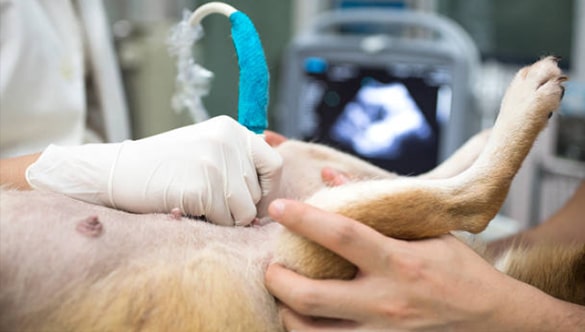
Jack has an aggressive cancer coursing throughout his body. According to scientists the average lifespan of those dogs is about 2 to 3 months.

Mast cells tumors-can be aggressive or benign no way to tell before biopsy.
How long will a dog live with mammary cancer. How long will a dog live with mammary cancer. Best answers The average survival time for mammary gland sarcomas of any kind is short usually between 9 and 12 months. According to scientists the average lifespan of those dogs is about 2 to 3 months.
Depending on the type of cancer your dog suffers from different short-term survival. Despite what research studies suggest neither dog lived to their expected survival. Mammary carcinoma-occurs in unsprayed females 50 of the tumors are malignant.
Mast cells tumors-can be aggressive or benign no way to tell before biopsy. Cancer is not a death sentence for your dog. Cancer treatment has changed radically in the last ten years and more advances are literally happening every day.
If your dog develops cancer seeing a veterinarian is the first step in stopping. The Science Behind the Spay. Mammary cancer in dogs is more common in older dogs and dogs who have either not been spayed or spayed after the first heat.
Ive read that females should be spayed well before their first heat and other reports suggesting that spaying should occur much closer to that 6. If a tumor that hasnt spread is removed surgically the treatment may be curative. But the mammary tumors in dogs life expectancy for each individual canine diagnosed may considerably vary from two months to multiple years.
How Much Does Mammary Tumor in Dog Surgery Cost. While some pet parents discover a dogs cancer during a drastic decline in their health others may discover the issue during a routine exam of their happy pup. Some dogs will have a short span of happy days after their cancer diagnosis.
The average survival time for mammary gland sarcomas of any kind is short usually between 9 and 12 months. Inflammatory mammary gland tumors are highly aggressive and typically present as a rapidly growing tumor with ulceration edema and erythema. They knew their pet was geriatric and approaching the end of his normal expected lifespan.
Their dog was also sick at the time of diagnosis further reducing their interest in pursuing aggressive treatment. In each instance above despite the identical diagnosis the survival times are vastly different1 day versus 20 months. With pets living longer than ever cancer has become a diagnosis that we see more commonly in older dogs.
The American Veterinary Medical Association AVMA reports that one in four dogs will develop cancer at some time in their life and that 50 of pets over the age of 10 will develop cancer. When your dog is nearing the end of hisher life the emotional weight that falls upon you can be tremendous. The endearing habits the joy the unquestioning devotion your animal gave you fill your heart as you confront the expected loss.
Many of us view our dog as a beloved member of the family to whom we have made a commitment to care for. Unfortunately there may come a time. How long can a dog live after being diagnosed with this kind of cancer.
Because lymphoma is often widespread surgery is often unable to remove all traces of cancer. Chemotherapy is a common treatment to help slow the spread of the diseaseas left untreated the average life expectancy for dogs after diagnosis under three months. Unfortunately some dogs diagnosed with lymphomas will not.
If your dog is 8 and the average lifespan for his weight and breed is 10 years and your veterinarian tells you that his survival time for his cancer is about 18 months to two years and calls that a long time hes right from a medical perspective. From a medical perspective having a dog live the average lifespan is a good result. Jack has an aggressive cancer coursing throughout his body.
A childhood friend who is now a vet tried to provide hope by urging us to do the. And that is with chemotherapy. If you have a dog with lympho and your dog is doing well 6 months after diagnosis you are already beating the curve since median survival is as low as 6 months in some cases with the chemo.
What if your dog has lympho and is on pred only. Median survival for those dogs is roughly 2 or 3 months. However after a first or second heat this dramatically increases to a risk of 8 and 26 respectively.
Age also appears to play a role. The risk of tumor development significantly increases once a dog reaches 7 years of age and continues increasing until 11-13 years of age. The life expectancy of a dog with an aggressive tumor that has spread to other parts of the body mediatized is roughly 4 to 6 months.
Assuming the mast cell is in a place where it can be completely removed through surgery including a wide margin to account for cancer cells not seen there is a 90 100 chance the tumor will not recur.